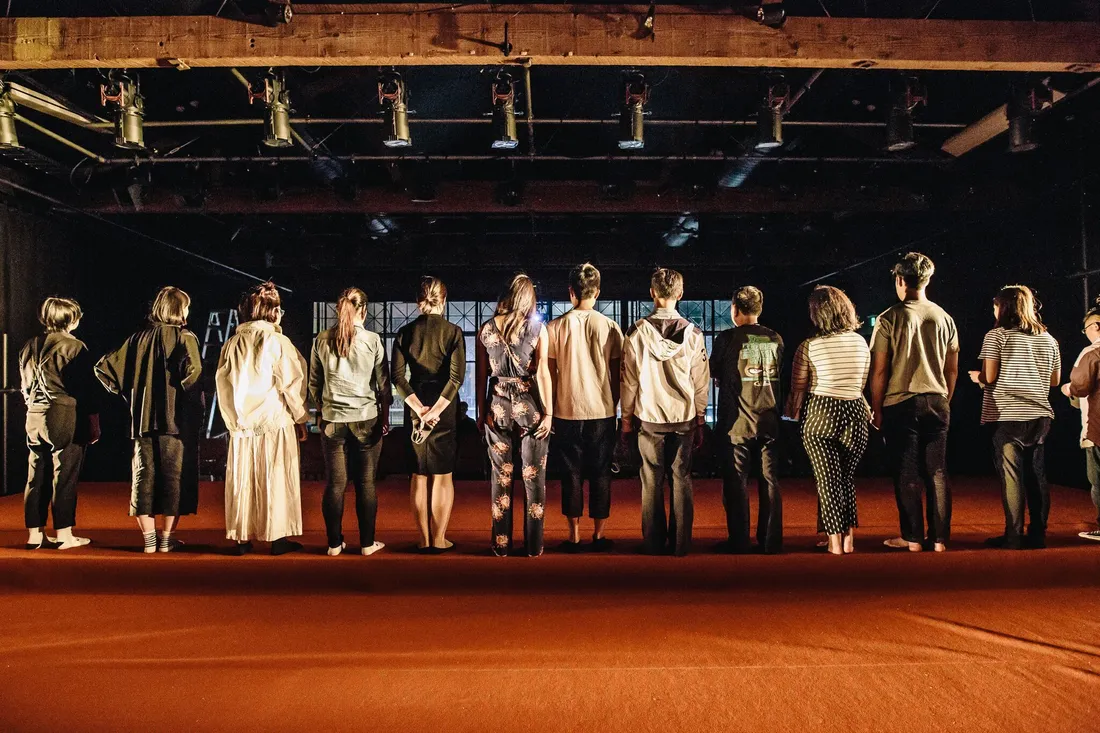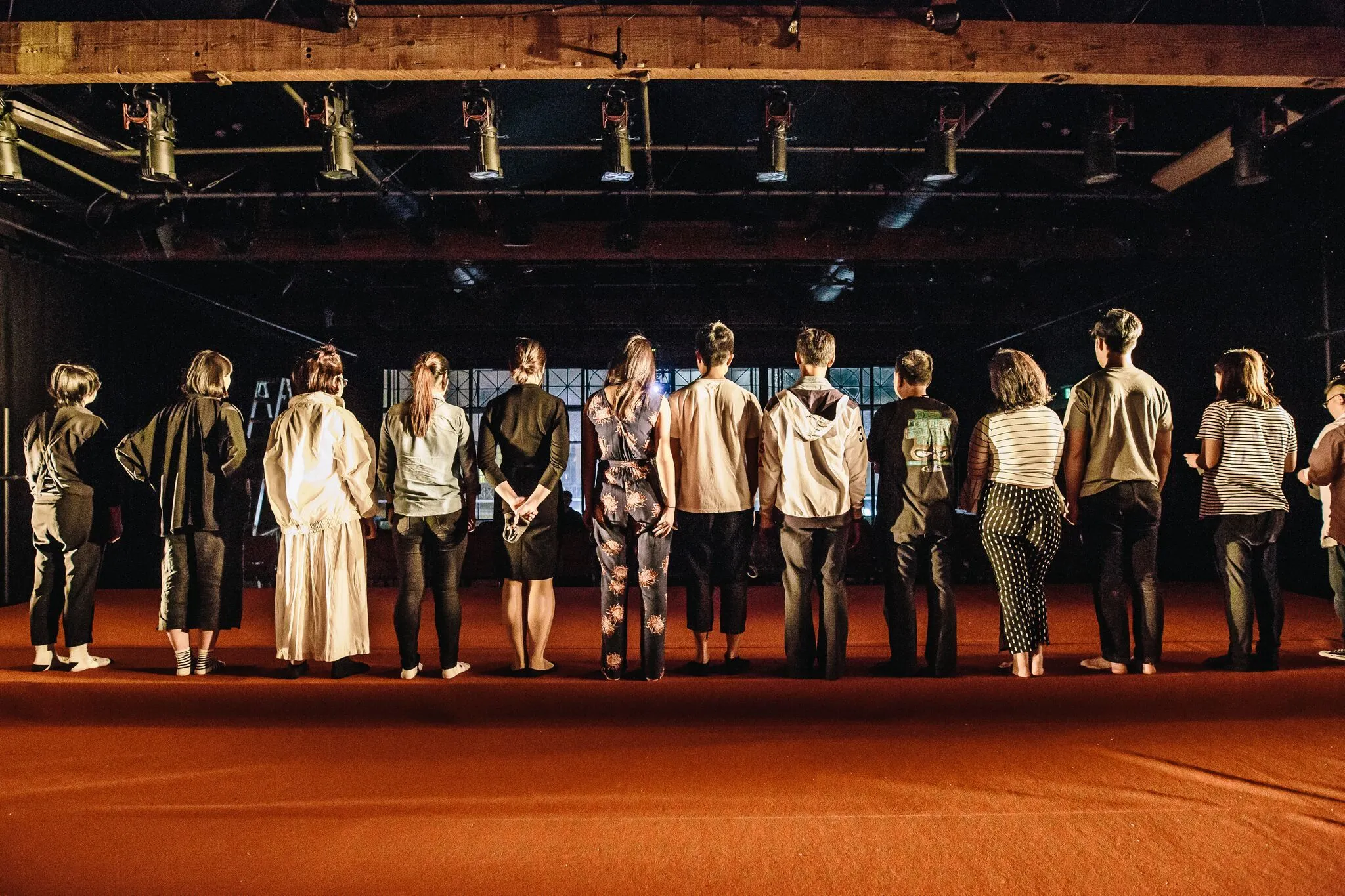Alice Canton: Questioning Authenticity
Written by


There are a number of ways to define ‘authentic’, but these two in particular capture the conflicted nature of how the word is commonly used:
-
made or done the same way as an original, e.g. authentic Chinese fare
-
true to one's own personality, spirit, or character, e.g. is sincere and authentic with no pretensions
(thanks Merriam-Webster)
When people talk about culture, they tend to rely on the first definition above, defaulting to generalisations, stereotypes if you will, that create broad definitions of people based on common perspectives of traditional practices. Thrown into the big ol’ mixing bowl that is society, this expression of authenticity takes precedence undermining the second definition where authenticity is the individual expression of one’s own unique personality or character. This results in a messy space in the middle of these two definitions, where someone born or living in New Zealand whose ancestry stems back to a cultural minority finds themselves constantly up against social expectations of their authenticity which by in large are defined by cultural stereotypes.
This messy space is where theatre creator, Alice Canton, resides and she her latest work OTHER [Chinese] is no exception. Her work consistently challenges audiences to embrace “uncomfortable and nuanced conversations about race” so that we can start to breakdown some of the cultural stereotypes that stifle the ability for individuals to express their authentic selves.
“When we genuinely create space for authenticity, then we have to be prepared to let go of what we believe (or desire) the authentic to be - it can be banal, problematic, hypocritical, boring. And that can be quite a profound thing.” Alice, quoted in an interview over at The Speakeasy
OTHER [Chinese] is a large-scale documentary-style theatre production that rejects the concept that being Chinese can ever be just one thing. It openly and honestly portrays the voices and experiences of 100’s of Chinese New Zealanders who often have in common only the fact that they are of Chinese heritage. Her message is crystal clear: we are not all the same, and there is no such thing as ‘Chineseness’.

Alice has sought conversations with hundreds of New Zealanders. Through a series of workshops, she identified 14 key storytellers who take to the stage to offer insight into their life experiences. As Alice explains, “the performers in this show are real people reflecting on their real personal experiences, not actors putting on a character for a night.”
In addition to the 14 storytellers, every performance involves a different ensemble cast of 20-25 people who volunteer on the night to be part of the performance. The show also includes video footage of interviews with prominent Chinese individuals who live in Auckland. It’s complex, the words logistical nightmare spring to mind, but the complexity serves to add to the message that identity is a messy, varied and extremely personal thing that is different for everyone.
At its heart, this work rejects authenticity.
Yet, if we return to the dictionary definitions above, through creating this show Alice is in many ways honouring that personal authenticity defined in the second meaning that is all too often subsumed by the limitations of the first definition. OTHER [Chinese] rejects the form of cultural authenticity that simplifies experience and stifles identity, and fervently advocates for people to be seen honestly. Through her approach to this work, Alice has provided a platform for individuals to reveal their true selves while at the same time challenging the audience's preconceived ideas of what it means to be Chinese.
For Alice, this has been a huge journey of learning. As a practitioner she was breaking new ground in New Zealand theatre - there are very few examples of local large-scale documentary-theatre that she could refer to for guidance. And personally, she had to learn how to practice what she was advocating for by facilitating a process that genuinely allowed people to define the outcome, where they could express their experiences and beliefs even if those weren’t ones that Alice identified with or had imagined to become part of the final outcome. Largely, she says, that creating the space for this to happen involved removing her own expectations for the process. She explains,
“I went into this project thinking it was going to be about the commonality of the experience of being Chinese. I thought we were going to be having complex conversations about identity, internalised racism and being a minority - which for me is what I wanted to talk about. I went into the space with a liberal agenda for the conversation and this was absolutely not the case. All of a sudden you realise that you say something like internalised racism and three quarters of the room have no idea what you’re talking about. Everyone’s experiences are so different.”
As a group, the participants had to learn how to become comfortable with each other’s differences of opinion. Alice explains that a large part of the workshops was learning how to sit in a sustained place of social and political difference and working out how to take value from that. “How do we create space where you can have a different opinion that's not even in dialogue with the opposite opinion to yours, it’s just a statement. Over time people became more comfortable with disagreeing. There is an art to conflict. It’s not resolved conflict, but how do we sit in conflict with each other.”
Bringing the stories of so many along with her was a huge responsibility and Alice says that most of the time she let her instincts guide the direction of the project. Partly, this involved remaining incredibly resolute about her vision for the project. In any project there are a lot of outside influences and opinions that you have to weigh up, whether it is meeting the criteria of a particular funding body, the expectations of a venue or the opinions of your peers. For Alice, she says that at every stage she had to “follow her gut” in order to maintain the integrity of this audacious undertaking.
“Going with your gut is a way of honouring your vision of the work as opposed to someone else’s vision of the work. It indicates the amount of courage needed to follow through on your own ideas, because nine times out of ten people say you can’t or shouldn’t do this. There are enough popular choices that one can make as an artists that negates integrity in a project. In a project like this with such a strong social purpose, it was essential to honour that integrity. In this case, it involved looking at documentary format, looking at non performers as storytellers, looking at scale and inviting lots of people to be involved. It involved making the whole thing process driven rather than outcome driven.”
The most frightening moment of the whole project for Alice was right before the audience entered the theatre. The night before they had opened to a preview audience which had resulted in a lot of trepidation about how the show was going to present in front of a live audience. Remembering that first preview performance, Alice says, “It was a really hard moment. The participants were reflecting back that it wasn’t really what they thought it would be and there was a lot of disappointment. It felt way to ambitious and I felt like I had over promised and let everyone down. It felt like I had just done a massive public fuck up and I was taking all these people with me.”
In retrospect, Alice can see clearly what had happened. Throughout the creation phase, Alice had played the essential role of facilitator in the workshops. She explains that the environment in which they developed the show wasn’t performative, instead it was a space that encouraged storytelling and shared experiences. Once they hit the big theatre stage, she stepped into her assumed role as director and out of her facilitatory role which created an uneasy and disruptive distance between her and the participants.
“Once you get to the theatre and you’re dealing with sound and lights and theatre design and the curation a presentation of these ideas all of a sudden you stop using the language of holding a space and signing in with people to make sure they are comfortable. You just want to run over that sound queue four more times. That language is so foreign to someone who is not a performer. Those two days were really disruptive for my participants.”
Listening to her gut, Alice made the decision at the last minute to place herself back into the role of facilitator and become a visible part of the performance so that she could direct from the stage and actively support and guide those who had come on this journey with her. “Up to that point I had planned to be invisible and just have the performers presenting their work,” Alice explains. “I had resisted that urge to be a facilitator because I didn’t want that to take up any space.” She wanted to avoid her presence coming across as a dramaturgical statement that became a focus point over and above the stories themselves.
For Alice, remaining flexible and open to change right throughout the process was essential to carrying the her vision through to fruition. Allowing herself to step back into the show was essential to support the participants to honestly, vulnerably and bravely present their most real selves. When it really comes down to it, Alice says, “the essence of the show is about the person delivering their own truth.” This could only be achieved through the careful juggling act of staying true to her original vision, yet still allowing space for the participants to influence that idea through their self expression, all the while rejecting the stifling concept of cultural authenticity.
Follow Alice's work through her Facebook page: www.fb.com/whitemesstheatre
Alice Canton website, Alice Canton, White Mess